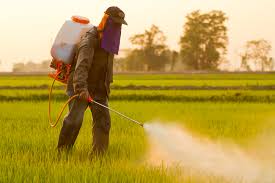
Glyphosate worse than we could imagine. “It’s everywhere”
News Editors

As new studies continue to point to a direct link between the widely-used glyphosate herbicide and various forms of cancer, the agribusiness lobby fights ferociously to ignore or discredit evidence of human and other damage. A second US court jury case just ruled that Monsanto, now a part of the German Bayer AG, must pay $ 81 million in damages to plaintiff Edwin Hardeman who contracted non-Hodgkin’s lymphoma cancer. The ruling and a line-up of another 11,000 pending cases in US courts going after the effects of glyphosate, have hit Bayer AG hard with the company announcing several thousand layoffs as its stock price plunges.
(Article by F. William Engdahl republished from GlobalResearch.ca)
In a trial in San Francisco the jury was unanimous in their verdict that Monsanto Roundup weed-killer, based on glyphosate, had been responsible for Hardeman’s cancer. His attorneys stated,
“It is clear from Monsanto’s actions that it does not care whether Roundup causes cancer, focusing instead on manipulating public opinion and undermining anyone who raises genuine and legitimate concerns about Roundup.”
It is the second defeat for the lawyers of Monsanto after another jury ruled in 2018 that Glyphosate-based Roundup was responsible for the cancer illness of a California school grounds-keeper who contracted the same form of cancer after daily spraying school grounds with Roundup over years, unprotected. There a jury found Monsanto guilty of “malice and oppression” in that company executives, based on internal email discovery, knew that their glyphosate products could cause cancer and suppressed this information from the public.
A new independent study shows that those with highest exposure to glyphosate have a 41% increased risk of developing non-Hodgkin lymphoma (NHL) cancer. A meta-analysis of six studies containing nearly 65,000 participants looked at links between glyphosate-based herbicides and immune-suppression, endocrine disruption and genetic alterations. The authors found “the same key finding: exposure to GBHs (glyphosate-based herbicides) are associated with an increased risk of NHL (Non-Hodgkin’s Lymphoma).” Further, they stated that glyphosate “alters the gut microbiome,” and that that could “impact the immune system, promote chronic inflammation, and contribute to the susceptibility of invading pathogens.” Glyphosate also ”may act as an endocrine disrupting chemical because it has been found recently to alter sex hormone production” in both male and female rats.
In a long-term animal study by French scientists under Gilles Eric Seralini, Michael Antoniou and associates, it was demonstrated that even ultra-low levels of glyphosate herbicides cause non-alcoholic liver disease. The levels the rats were exposed to, per kg of body weight, were far lower than what is allowed in our food supply. According to the Mayo Clinic, today, after four decades or more pervasive use of glyphosate pesticides, 100 million, or 1 out of 3 Americans now have liver disease. These diagnoses are in some as young as 8 years old.
But glyphosate is not only having alarming effects on human health. Soil scientists are beginning to realize the residues of glyphosate application are also having a possibly dramatic effect on soil health and nutrition, effects that can take years to restore.
Killing Soils too
While most attention is understandably drawn to the human effects of exposure to glyphosate, the most widely used agriculture chemical in the world today, independent scientists are beginning to look at another alarming effect of the agrochemical– its effect on essential soil nutrients. In a study of the health of soils in the EU, the online journal Politico.eu found that the effects of spraying of glyphosate on the major crops in European agriculture is having disastrous consequences on soil health in addition to killing weeds.
https://www.naturalnews.com/2019-04-30-glyphosate-worse-than-we-could-imagine-its-everywhere.html
